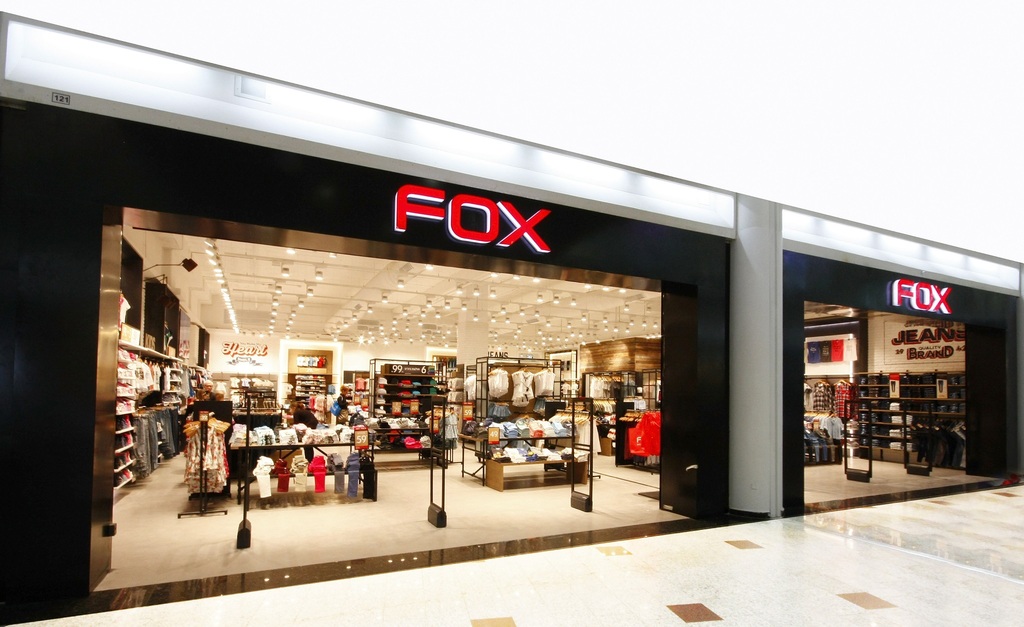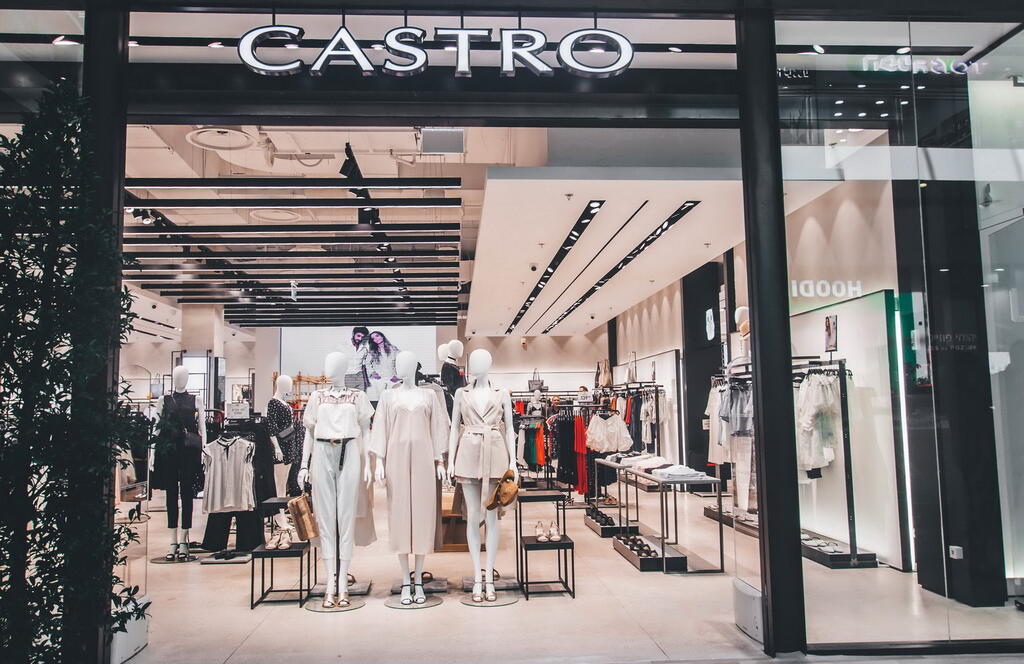
A stagnation in Fox’s revenue along with a decline in the net profit line, following the three closures that hurt the group’s results: Fox marks the year 2020 with a slight increase of only 1% in revenues to NIS 2.79 billion, and a decrease of 16% in net profit to NIS 202.4 million.
The growth in sales in the sports field in Nike and Dream Sports stores, the Terminal X trade site and the increase in sales in the same stores contributed to the revenue. This is alongside the consolidation of the results of Billabong, Yanga and American Eagle in 2019.
2 View the gallery


The surge in Terminal X sales helped the group maintain the top line in the reports, in contrast to competitor Golf Group which ended the corona year with a 11% drop in revenue. Fox’s website revenue jumped to NIS 226 million in 2020, compared to NIS 80 million in 2019.
In the field of sports, which is incorporated under retailers (and includes 108 branches in Israel, Canada and Europe), which includes the Nike, Potlocker and Dream sports brands, annual revenues were recorded at NIS 462 million and the gross profit rate was 49%, compared to NIS 612.5 million in 2019 and Gross profit of 48.6%. The revenue per square meter in sports stores in Israel and abroad was NIS 2,935, compared to NIS 2,735 in 2019.
Despite the closure of stores during the closure period, in 2020 there was an increase in revenue per square meter in the field of fashion and home fashion to NIS 1,179 per square meter, compared with NIS 1,030 per square meter. The revenue per square meter in the same stores is NIS 3,078 per square meter, compared to NIS 2,514 per square meter in 2019. In the field of sports, too, revenue per square meter jumped to NIS 3,479, compared with NIS 2,772 in 2019.
The closure of the stores and the expulsion of the employees to the IDF reduced the group’s operating expenses, and accordingly Fox was able to show a 17% increase in annual operating profit to NIS 409 million. Its share of sales increased to 14.6% compared to 12.6% last year. And stood at NIS 1.56 million, down from 56% to 56.8% in the same period last year.
In the fourth quarter, Fox first consolidated Lalin’s results after increasing its stake in Atmosphere Products. The consolidation of results increased the line of administrative and general expenses by 20.6% to NIS 44.6 million.
In contrast to companies that reduced commercial space during the Corona period, the group is one of the companies that took advantage of the cheap real estate that was vacated during the crisis – Fox increased the number of stores to 746 as of year-end, compared to 720 stores in 2019. The group, with the addition of 25 stores.
Fox reports reveal the reliefs Fox received from the mall companies: While in 2018 the cost of setting up a store was NIS 4,600 per square meter, and in 2019 it jumped to NIS 6,200 per square meter, in 2020 the price dropped to NIS 4,900 per square meter In 2020, Fox invested NIS 4.9 million in opening 6 stores in the field of fashion and home fashion, and the group reports that in 2019 and 2020, the malls’ participation in the establishment of the stores was between 48% and 79% of the cost.
Fox’s workforce expanded in the year of the report by 108 and as of the end of 2020 the number of slaves stood at 8,605. The workforce has grown mainly due to the recruitment of employees for the new sports shops established by the group. In this area, the number of employees employed by the group both at headquarters and in stores increased by 457 employees in 2020 to 2,014 in total. On the other hand, the company reduced the manpower it employs in the field of fashion and home fashion by 295 employees, to 4,363. In July, Fox distributed a dividend of NIS 49 million and in March 2021 it announced a dividend of NIS 77.8 million for 2020.
Reducing manpower, closing 17 stores permanently, reducing selling expenses, and easing rents in closures – all of these have helped the Castro Group improve profits. Although the group closed 2020 with a 30% drop in revenue it moved to operating profit and reduced the bottom line loss by 85%.
The fashion group’s revenues last year amounted to NIS 1.2 billion and it lost NIS 12.8 million, compared to a loss of NIS 85 million in 2019.
2 View the gallery


Castro branch
(Photo: Amy Nakdai)
The chain operates the retail companies Castro, Hoodies, Urbanica, Topten, Carolina Lemke, Kiko Milano, and Yves Rocher. All of the group’s brands recorded a decrease in revenue due to the closures that lasted four months during 2020.
Like the other retailers, the fashion group led by Ron Rotter enjoyed impressive redemptions at trade sites during the crisis. According to Rotter, “The iconic sites of the group’s brands recorded a record 26 million entries and exceeded the revenue of NIS 150 million.”
The decrease in the Group’s revenues adversely affected gross profit, which decreased by 31.4% to NIS 661 million, but strategic actions taken by the Group’s management, such as streamlining store operations and reducing advertising expenses, reduced selling and marketing expenses by 40% to NIS 537.3 million. Castro also carried out logistical streamlining and company operations that reduced management expenses and general expenses by 33%.
These actions contributed to the group’s operating profit line. They also contributed to the transition to profit – the sale of a property in Bat Yam on which the group recorded a one-time profit of NIS 34 million, along with recognition of tax revenue of NIS 8.9 million. The company made an operating profit of NIS 68 million.
During 2020, the group received NIS 58.5 million in rent reductions. In 2020, the rate of rent and management fees paid by the Group in relation to sales turnover decreased by 1%, excluding the effect of the accounting standard, which stood at 21% compared to 22% in 2019.
Most of the mall groups offered relief on their own initiative, and in other cases the group received an exemption from rent for closure periods and discounts for the period between closures, after negotiations.
Wages also decreased by 3.86% relative to turnover and were 16% in 2020 compared to close to 20% in 2019. Castro currently employs 1,752 fewer people compared to the pre-crisis period.
Some employees were fired and some preferred not to return from the hospital, so the company says that it currently lacks about 500 employees. The number of employees as of December 2020 was 3,709 employees compared to 5,461 employees in 2019. “Sales in the same stores increased by 12.5% in 2020 with an emphasis on the clothing sector in which we have made a phenomenal revolution in the last two years, “says Rotter, the company’s CEO.
“The strategic moves of increasing the stores in the Castro brand and changing the collection are affecting the group’s growth and increasing the profit margin. The increase in identity stores and the transition to operating profit is proof of our successful deal with the Corona,” added Rotter.